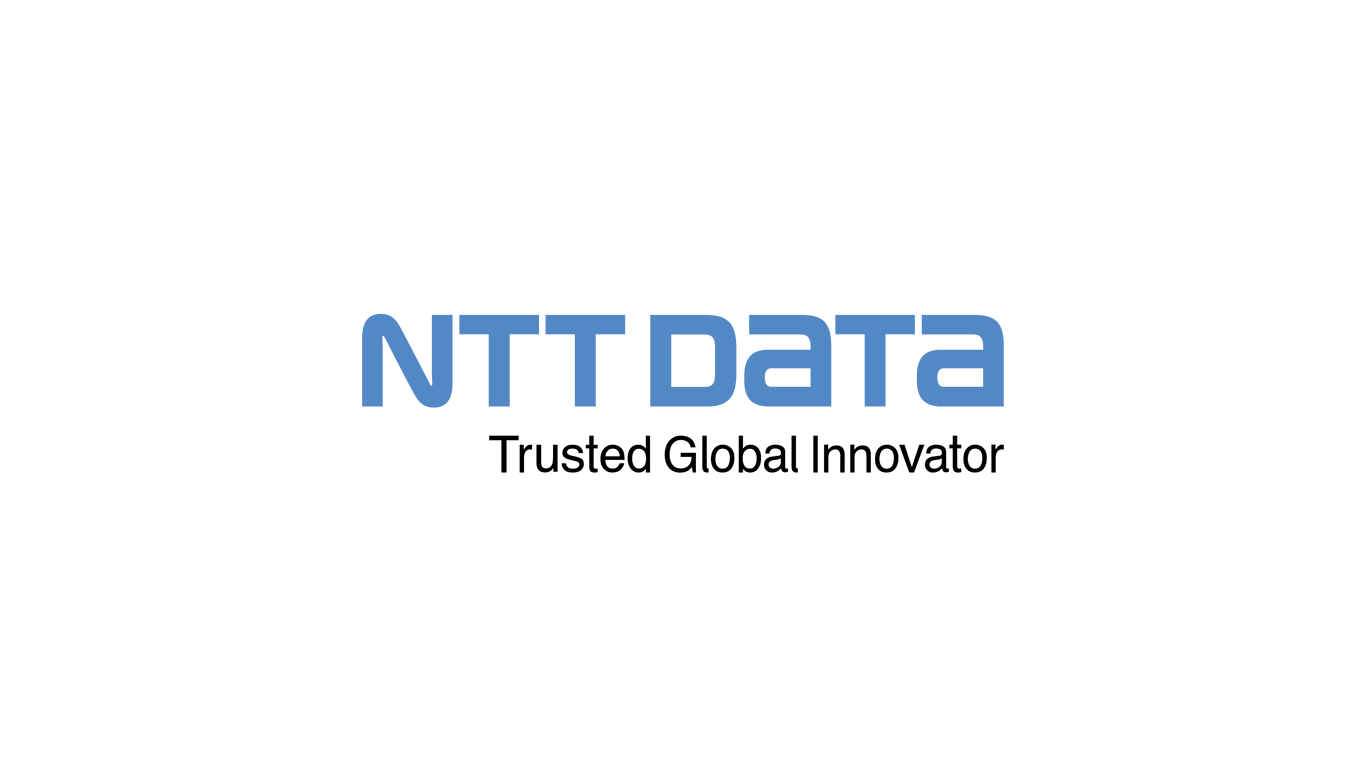Published
- 03:00 am

The Philippines’ First Neobank Tonik Digital Bank proudly announces the launch of its Shop Installment Loan to FC Home Center stores. The partnership pushes to enhance the shopping experience of customers in the consumer durables market.
Customers will now have access to 15-minute loan approvals and hassle-free and flexible financing in the Tonik app, ultimately fast-tracking processes and eliminating lengthy traditional loan application procedures.
In addition, Tonik also proudly provides the lowest monthly installments currently available in the market, giving customers access to better financing options and empowering them to make purchases with the lightest monthly installments. This is an edge that Tonik has in their thrust to enable more Filipinos to pursue their aspirations without steep costs.
“Tonik’s vision is to drive financial inclusion and we commit to deliver that by providing innovative and accessible products to a wide range of customers,” said Greg Krasnov, Founder of Tonik Digital Bank. “The partnership with FC Home Center aligns with this commitment and creates a win-win situation for us and our customers.”
FC Home Center is a trusted retailer of home appliances, electronics, and home effects offering a variety of popular and alternative brands across its network of stores. From its humble beginnings, the brand has grown to become a key player in the industry. With the collaboration with Tonik, FC Home Center is extending better financing options to its customers.
“We believe that this partnership [with Tonik] will be beneficial to our customers, and at FC [Home Center], that is really what we want, for our customers to have a good life,” said Ms. Babe Daanug, Chairman of FC Home Center.
The partnership is a significant move for the consumer financing industry, as it emphasizes technology’s strength to seamlessly improve customer experience through innovative digital banking products.
Related News
- 01:00 am

Xverse, a Bitcoin Web3 wallet, including NFTs through a method called Ordinals, has secured significant backing in its latest seed round.
The company raised $5m in a seed round that was led by prominent industry investor Jump Crypto.
Other participants in the round included RockawayX, Sfermion, Alliance, NGC Ventures, V3ntures, Old Fashion Research, 2140 Bitcoin Ecosystem Fund, Bitcoin Frontier Fund, Newman Capital, Franklin Templeton, New Layer Capital, Miton C, Gossamer Capital, Daxos Capital, Sora Ventures, Tyhke Block Ventures, IOBC Capital and Despread, among others.
Xverse offers a unique Bitcoin Web3 wallet, providing users with an extensive range of advanced features related to decentralized finance (DeFi), Stacks, Lightning, and other Bitcoin scaling solutions. The company also supports Ordinals, a cutting-edge method of generating NFTs on the Bitcoin blockchain, which has been making headlines in recent months.
The new funding will enable Xverse to accelerate the development of its advanced features, particularly in areas related to DeFi and Bitcoin scaling solutions such as Stacks and Lightning.
Last month, Ordinals, the method of generating NFTs supported by Xverse, received considerable attention after daily new inscriptions reached a staggering 350,000. The Xverse wallet is available on iOS, Android, and also through a Chrome extension.
Related News
- 08:00 am

Checkout finance platform, Deko, has announced a milestone BNPLaaS partnership with Aero Commerce, bolstering the e-commerce platform's offering and technological capabilities. Among the checkout finance capabilities available through this partnership, Aero has directly integrated Deko's Newpay product, a digital credit account, that improves conversion rates and encourages repeat spending.
Aero is a powerful e-commerce platform, designed with the evolving needs of retailers in mind. Aero Commerce works closely with a carefully curated network of over 150 specialist e-commerce development agencies, who craft online stores for ambitious retailers.
Richard Bendelow, CEO of Aero Commerce, said: “We’re pleased to have partnered with Deko to deliver the Newpay product to our platform. The flexibility of the Newpay digital credit account, seamlessly integrated into our checkout, helps drive conversions on higher value baskets and we’ve already had numerous requests to integrate the solution”
“Retailers using the Aero platform gain access to high converting, lightning-fast and fully extensible e-commerce stores that have highly sophisticated yet easy-to-use back-end capabilities. Working with Deko, a leading checkout finance platform, further enhances our agency, retailer and consumer experience”.
Deko’s embedded checkout finance solution will enable Aero Commerce’s agencies to offer a market-leading product, opening up access to finance for consumers and improving commercials for merchants. From product integration to the end-customer journey, Deko’s technology is designed to remove friction points and offer a seamless credit experience for partners natively within their software platforms. The Newpay product itself provides one of the widest, affordable range of credit options on the market today.
John Roberts, Head of Strategic Partnerships at Deko, added: “Aero Commerce were an obvious choice for us to partner with as they sit at the heart of the UK e-commerce ecosystem. It's been a delight to see Newpay, one of a range of checkout finance products powered by Deko, gather immediate momentum with Aero's merchants. So much in fact, we are already live with a tier 1 retailer. It's an exciting start. Deko's embedded finance solutions enable partners to deliver a wide range of finance products, unlocking higher acceptance rates through just a single integration. We look forward to a long and successful partnership with Aero Commerce, supporting their web agencies with a variety of flexible payment options and ultimately, a source of revenue.”
Related News
- 04:00 am

The leading conference for power electronics in Asia returns to Shanghai this year, gathering leading experts and academics from across the country and beyond to share the latest findings and technology within power electronics, intelligent motion, renewable energy and energy management. Highlighted areas include wide-bandgap devices, power semiconductors, packaging technology and more.
Taking place from 29 – 31 August 2023 at the Shanghai New International Expo Centre, PCIM Asia 2023 is expected to attract more than 180 exhibitors to showcase their latest advancements in power electronics technology. As a major part of the event, the PCIM Asia Conference is also set to bring together many leading scholars in the field to discuss the results of their research among an audience of their peers.
Keynote sessions
This year’s conference will once again feature several keynotes highlighting the latest power electronics trends, with expert speakers from China and overseas. Topics include:
- The new generation of gallium nitride power devices; breaking the limits of ease-of-use and reliability
Speaker: Florin Udrea, Cambridge GaN Devices, UK
- Packaging and integration of wide-bandgap power semiconductors: Challenges and opportunities
Speaker: Christina DiMarino, Virginia Polytechnic Institute and State University, USA
- Power semiconductor devices in wind power applications
Speaker: Dapeng Zheng, Shenzhen Hopewind Electric, China
In addition, there will be a series of oral and poster sessions, presented by industry-leading experts covering a wide range of power electronics areas. Topics featured will range from IGBT and SiC devices, advanced controls and associated hardware, Si and WBG devices, motion control, power converters, power semiconductor modules, automotive applications, packaging and reliability, high power and grid applications, power semiconductor devices and more.
In this year’s special session, representatives from Infineon Technologies and Rompower Energy Systems will deliver several presentations exploring different aspects of GaN based high power density supplies.
At the same time, a tutorial on high-performance power modules and SiC devices will also be held alongside. The session will aim to introduce the key concepts, principles and applications of power modules, SiC (Silicon Carbide) devices and discrete components. Participants will gain a deep understanding of the latest technologies and industry trends. Speakers will reveal how to design and apply high-performance power modules and SiC devices to meet the requirements of modern power conversion and energy management systems.
Three awards to celebrate power electronics achievements
The conference will once again host several awards to recognise the key players who contribute to the industry’s on-going innovation. Sponsored by Mitsubishi Electric & Electronics (Shanghai) Co Ltd, a panel of judges will decide the Best Paper Award for the most significant submission among all papers.
The “Young Engineer Award” will be awarded to engineers under the age of 35 for their contributions to power electronics. The award is sponsored by Semikron Danfoss, and aims to encourage new blood to engage with power electronics and inject new ideas to maintain the industry’s dynamism and vitality.
Hand in hand with this is the “University Scientist Award” supported by Infineon Technologies China Co Ltd. The award is for teachers and researchers in academic institutions helping to foster the next generation of power electronics talent.
Registration for the 2023 conference is now open. Interested parties can register here: https://qr.messefrankfurt.com/9bd44
PCIM Asia is jointly organised by Guangzhou Guangya Messe Frankfurt Co Ltd and Mesago Messe Frankfurt GmbH. To find out more about PCIM Asia, please visit www.pcimasia-expo.com or email pcimasia@china.messefrankfurt.com.
Related News
- 09:00 am

New research from global SME funder, Bibby Financial Services, reveals that 2023 is the worst economic environment for small and medium-sized enterprises (SMEs) in 15 years.
Findings from the 2023 Global Business Monitor, which surveyed SME owners and decision-makers from nine countries, show inflation (55%), energy costs (49%) and uncertainty over local economies (28%) are stifling business growth in 2023.
Notwithstanding these challenges, SMEs are upbeat about their own prospects. The vast majority (85%) are confident about their prospects for the remainder of 2023, and nearly two-thirds (64%) anticipate that sales will increase over the coming months.
Jonathan Andrew, Global Chief Executive Officer at Bibby Financial Services, said: “Today, business owners are battling with a cost-of-doing-business crisis on two-fronts: significantly higher costs and monetary policy leveraged to tackle this primary issue. The fact that so many are positive about their own prospects in the face of these challenges is testament to the ingenuity and determination of SME owners around the world.”
Regional variations paint a more nuanced picture. In the Republic of Ireland, SMEs are hugely optimistic with 90% saying they feel confident about their prospects. Conversely, over a fifth (21%) of Polish SMEs lack confidence in their outlook for the remainder of this year.
German SMEs are the most bullish in their trading expectations, with 75% anticipating that sales will grow over the coming months. In the UK and the Netherlands, there is greater caution, with 54% predicting only a slight increase in sales.
Despite an optimistic outlook, cashflow remains an obstacle to progress for SMEs across international markets. Findings reveals that 26% of small businesses have insufficient cashflow to grow, and 10% don’t have enough to operate effectively on a day-to-day basis.
This issue is exacerbated by supply-chain pressure with more than a third (35%) of those surveyed writing-off monies owed in the last 12 months and 31% reporting customers and suppliers going into administration. More than half (51%) say customers are taking longer to pay than in 2022, and a similar proportion say they are being forced to pass on higher costs to customers (50%).
Jonathan Andrew, commented: “While the overriding sense of optimism is encouraging, slow growth across international economies, inflation and rising interest rates are beginning to impact supply-chains. For small business owners, there is no one-size-fits-all solution to navigating the uncertain outlook ahead. What is clear across all markets is that SMEs need all the support they can get from both the private and public sectors.”
The majority (89%) of SMEs plan to invest in their businesses this year. The most popular areas earmarked for investment are sales and marketing, staff training and development, and digital technology and IT.
To support these investment intentions, SMEs are increasingly turning to third-party financing. Nearly half (46%) are more likely to use external finance than before the Covid-19 pandemic with bank and government loans, and unsecured lending the most popular options.
However, amid a backdrop of rising interest rates, many are considering alternative methods of financing to traditional sources.
“It is evident that the post-2008 era of low-interest rates has ended. This draws to close access to cheap finance for individuals and businesses alike. It is not only the cost of finance that is at risk. With traditional financing sources revaluating credit appetites, there is a very real possibility we may be entering a commercial credit crunch of sorts.
“It is critical that SMEs can continue to access the finance they need to operate and grow. This means considering a range of financing options that provide sustainable working capital and cashflow to help them overcome challenges and take advantage of opportunities that arise over the coming months.”
The full Global Business Monitor report is available online.
Related News
- 05:00 am

New research from NTT DATA UK&I, a leading innovator and IT services provider for the banking and financial services industries, provides some concerning insights regarding customer satisfaction and trust in the retail banking industry. Only a third (33%) of banking customers are currently ‘very satisfied’ with their overall experience with their main bank or building society, and only 11% strongly believe that their bank always prioritises their best interests.
The survey, which questioned a representative sample of 2,000 retail banking customers in the UK, set out to discover customer opinion and levels of trust with their bank or building society, in light of the Financial Conduct Authority's (FCA) Consumer Duty. The new rules came into force on 31 July 2023 and set higher and clearer standards of consumer protection across financial services, requiring firms to put their customers’ needs first and ensuring good customer outcomes.
NTT DATA’s research found that nearly half of banking customers do not believe that their bank has their best interests at heart, with the mistrust increasing with age. More than half (51%) of those aged 50 and over do not agree that their main bank or building society has their best interests at heart, compared to only a third (33%) of 16- to 26-year-olds.
In fact, there were age discrepancies across the board, with older generations less likely to agree that their bank or building society offers them the best products or services for them, helps them manage their finances, or supports their financial goals.
Understanding the customer’s needs
The research makes it clear that the majority of customers are not feeling supported by their bank or building society, particularly when looking ahead to the future. Less than a third (30%) stated that their bank or building society supports their financial goals, and only 38% trust their bank or building society to provide them with personalised advice.
Most worryingly, less than half (44%) do not think that their bank or building society understands their personal banking needs, with those in lower income brackets more likely to feel this way. Nearly three quarters (73%) of those earning over £100,000 believe that their main bank or building society understands their personal banking needs, compared to just 53% of those earning up to £12,749, 60% of those earning between £12,750-£24,999, and 55% of those earning £25,000-£49,999.
Jo Bevan-Taylor, Head of Business Consulting - Banking and Financial Markets at NTT DATA UK&I comments on the findings: “While the research doesn’t outline a completely bleak picture, it is concerning to see the overall lack of trust and dissatisfaction customers have with their banks and building societies currently, and it highlights the work retail banks have ahead of them.
“Importantly, banks need to focus on all groups when considering how they will approach the changes they need to make, in order to ensure they aren’t ostracising vulnerable groups. Looking at some of the discrepancies between income and age groups, there are some clear differences in how customers view the products and services they receive. Retail banks need to consider the varying needs of these groups and ensure they do not alienate individuals through inaccessibility for example.”
Bevan-Taylor continues, “Now that the new Consumer Duty rules are in place, banks and building societies not only need to prioritise customer satisfaction, personalised communication, and trust-building initiatives, but they will need to report on key areas too. This means it will be essential to focus on the design of the user experience, as well as building the right data analysis tools. It’s imperative that retail banks address these needs as soon as possible to ensure they increase customer trust and satisfaction while not finding themselves in breach of the rules.”
Related News

Reynaldo Marquez
Chief Financial Editor at NewsBTC
Change is the only constant, and the crypto industry is no exception. New age cryptos like Fetch.AI and Pikamoon are changing the face of the game. see more
- 01:00 am

Paytrix, the pioneering fintech firm that simplifies global payments for high-growth businesses, today announces the appointment of renowned Irish financial services entrepreneur, Joe Redmond, as Chief Executive Officer for Paytrix Ireland. With a formidable industry track record and extensive experience across payments, foreign exchange, governance, risk and compliance, Joe will oversee Paytrix Ireland’s programme of licence acquisition and regional expansion.
Paytrix unlocks access to the world’s best payments services across the full payments stack — collections, settlement and payouts — through one contract and one API. For fast-growing businesses with international ambitions, the Paytrix curation layer removes much of the complexity, cost and friction of international payments to help them scale smoothly.
Joe joins Paytrix Ireland at a time of significant momentum for the business following the completion of its Series-A fundraising round in March this year, which secured EUR 16.7m of investment.
Over a thirty-year career in foreign exchange and payments Joe built, scaled and successfully managed highly profitable businesses and market-leading positions for two of Ireland’s leading financial services companies, Bank of Ireland Group and FEXCO. He performed executive, chair and board director roles at both organisations.
Aran Brown, CEO & Co-founder of Paytrix said: “That Paytrix can attract someone of Joe’s calibre to the business not only makes me very proud; it also speaks volumes about the credibility of our vision of helping e-commerce businesses to scale globally by solving their payment challenges. His hire underlines our commitment to achieving a gold standard in licensing and compliance. Paytrix will benefit hugely from Joe’s experience in delivering an innovative, market-leading payment solution, and I cannot wait to get started working with him.”
Joe Redmond, incoming CEO of Paytrix Ireland said;” I joined Paytrix because I could see the enormous potential which exists in the company and the ambitious vision that Aran and Eddie have set for it. I am really looking forward to working with the great people I have met so far in delivering a truly innovative payments solution for our customers. We have a very exciting future in front of us as we look to develop the significant growth opportunities that are already emerging for Paytrix.”
Based in Dublin, Joe will set Paytrix Ireland’s strategic objectives and own responsibility for the firm’s operations across sales, marketing, commercial relationships and people. Joe’s work will play a vital role in ensuring Paytrix Ireland sits in the flow of funds — a keystone in Paytrix' goal of providing a global, seamless and secure payment experience. For customers, this will remove complex, costly third parties and give them greater control of the payment process.
With Ireland the centre of Paytrix’s global operations, Joe will head up an expanding team in the country with client support and heads of finance, IT and operations already based there. Paytrix Ireland has also hired Esther Espina, a highly experienced professional as Chief Risk Officer and Phillip Halford, with almost 40 years experience in banking and finance, as Head of Internal Audit to support Joe in executing his plans.
Moving forward, Paytrix’ plans to target the acquisition of further licences across Europe, and to expand globally as it aims to become the de-facto payments curation solution for ambitious online businesses.
Related News
- 02:00 am

LMS, the UK’s leading conveyancer and panel management specialist, today announces that Hanley Economic Building Society has chosen LMS Panel Link® to drive efficiencies in the conveyancing process. This collaboration will allow the lender to gain access to a fully vetted panel of law firms specifically tailored to its bespoke needs.
The unique Panel Link® service will provide a fully vetted panel that meets the lender’s exact requirements with a range of further components to further protect Hanley Economic Building Society and its customers from potential fraud. As such, the service helps streamline the conveyancing journey for both parties while keeping costs to a minimum.
Additionally, the lender is adopting both LMS’ Secure Link® and the Redemption Statement Portal. The first is an innovative messaging service that improves post-offer query turnaround times for law firms and lenders and digitises the conveyancing journey end to end while the second will allow Hanley Economic Building Society to secure the process for law firms in requesting redemption statements from the lender, in turn accelerating the overall conveyancing timescale for both purchase and remortgage transactions.
Finally, the lender will be using the Charge Registration Monitoring Service to amplify automation and compliance within its processes.
Commenting on the news, Nick Chadbourne, Chief Executive of LMS said:
“Our new partnership with Hanley Economic Building Society for our Panel Link® is a testament to our robust tech capabilities and our efforts to deliver further collaboration between lenders and legal firms while making the conveyancing process more efficient and streamlined.
We are looking forward to continue working with Hanley Economic Building Society and supporting their values for high quality customer service.”
Oliver Ward, Head of Operations at Hanley Economic Building Society added:
“We strive to offer our customers the best possible outcomes allow them to save safely and confidently build for their own futures, therefore all of our partnerships have this at their core. This is why we chose to work with LMS and leverage their services – they completely align with us as a business allowing us to better support our customers with a more secure and more efficient conveyancing journey.”
Related News
- 05:00 am

Two-thirds (65%) more businesses are experiencing difficulty in accessing finance from high-street banks than they were in 2022* as mainstream lenders pull away from the SME market, according to new data from Sonovate, the leading provider of embedded finance and payment solutions for the contingent workforce.
These challenges are now so acute that two in five (39%) UK businesses say that, due to funding being so hard to access, they are worried about the future of their organisation. This is a bleak picture, particularly when considered within the wider economic context of rocketing interest rates which are having a devastating impact on British businesses.
The findings come as a recent report from British Business Bank shows that equity finance for UK small and medium-sized companies declined by 11% in 2022 to £16.7 billion. This was driven by a downturn in market conditions in the second half of the year which has continued into 2023.
It is a trend that looks set to continue, with half (50%) of businesses surveyed by Sonovate saying it has been harder to get the finance they need in comparison to the period before the cost of living crisis.
Furthermore, half (48%) of organisations say banks do not understand their business needs, compared to 38% in 2022, and more than half (54%) say banks’ lending policies haven’t kept pace with modern business needs, which compares to 41% in 2022.
This disconnect is, in part, being bridged by fintechs, who are stepping in to offer alternative finance options where banks are failing. 40% of businesses agreed that it is easier to access finance from a fintech lender rather than mainstream banks, and seven in ten (70%) say their business wouldn’t have survived the current crisis if it weren't for alternative finance options.
But, with a significant proportion (46%) expressing uncertainty in knowing where to find alternative funding providers, it’s clear that more support is needed to signpost the options available to businesses. Indeed, around two-thirds (64%) of businesses agree that there needs to be more guidance from the government about funding options for small businesses.
Richard Prime, Co-Founder & Co-CEO of Sonovate comments: “The wider economic situation across the UK is putting businesses of all sizes under immense financial pressure, and the inability to access the cash flow they need is exacerbating the issue tenfold.
“With banks increasingly unable to offer the level of support that businesses need, there is a significant opportunity for fintechs to step up and provide alternative finance options that will prove critical to keeping many organisations afloat. We’ve seen this demand first hand - to date, we have already provided over £4 billion in funding, and expect the need for on-demand funding to continue to soar with reduced appetite from banks to provide finance to the UK’s innovative SMEs.”
Sonovate was set up as a challenger to traditional funders, and provides businesses - from start-up to enterprise - with on-demand invoice financing. The tech platform delivers swift credit decisions, same-day funding, credit insurance and collection services as well as timesheet and workflow automation, empowering companies to concentrate on expanding their business, confident that processes and funds are in place to help meet payment deadlines. Since it started funding in 2014, Sonovate has lent over £4 billion to 3,300 businesses and 40,000 workers in 44 countries.









